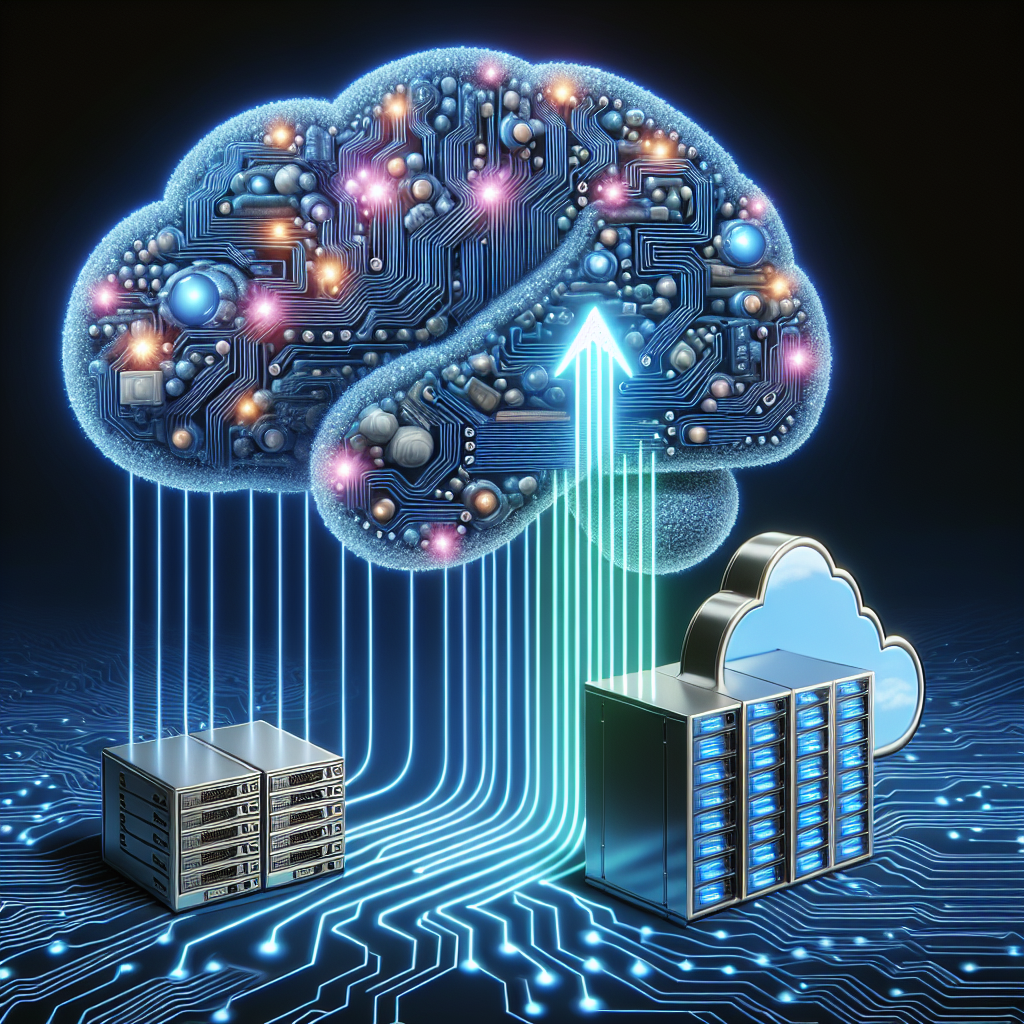The Impact of AI on Cloud Workloads
Artificial Intelligence (AI) has been making waves in various industries, transforming the way businesses operate and revolutionizing the way we live and work. One area where AI is having a significant impact is on cloud workloads. Cloud computing has become essential for businesses of all sizes, providing a scalable and cost-effective way to store, process, and analyze data. With the integration of AI, cloud workloads are becoming more intelligent, efficient, and powerful than ever before.
AI-powered cloud workloads are enabling businesses to leverage the vast amounts of data they collect to make more informed decisions, automate repetitive tasks, and improve overall efficiency. By harnessing the power of AI, businesses can analyze data in real-time, identify patterns and trends, and make predictions that drive business growth and success.
One of the key ways AI is impacting cloud workloads is through automation. AI-powered tools and algorithms can automate routine tasks, such as data processing, monitoring, and maintenance, freeing up valuable time for employees to focus on more strategic initiatives. This not only increases efficiency but also reduces the risk of human error and ensures that tasks are completed quickly and accurately.
Another significant impact of AI on cloud workloads is improved performance and scalability. AI algorithms can optimize cloud resources, ensuring that workloads are distributed efficiently and that resources are allocated where they are needed most. This results in faster processing speeds, reduced latency, and improved overall performance, even during peak usage periods.
AI is also enhancing security in cloud workloads. By analyzing vast amounts of data, AI can detect anomalies and potential threats in real-time, enabling businesses to proactively address security issues before they escalate. AI-powered security tools can also adapt to new threats and vulnerabilities, ensuring that cloud workloads remain secure and protected at all times.
Furthermore, AI is revolutionizing the way businesses interact with their customers. By leveraging AI-powered chatbots and virtual assistants, businesses can provide personalized and seamless customer experiences, 24/7. These AI-powered tools can answer customer queries, provide product recommendations, and even process transactions, all in real-time, enhancing customer satisfaction and loyalty.
Overall, the impact of AI on cloud workloads is undeniable. Businesses that embrace AI-powered cloud solutions are reaping the benefits of increased efficiency, improved performance, enhanced security, and personalized customer experiences. As AI continues to evolve and mature, the possibilities for cloud workloads are endless, and businesses that leverage AI will undoubtedly gain a competitive edge in the digital age.
FAQs
Q: How does AI improve efficiency in cloud workloads?
A: AI-powered tools can automate routine tasks, optimize resource allocation, and analyze data in real-time, resulting in increased efficiency and reduced operational costs.
Q: Is AI secure for cloud workloads?
A: Yes, AI can enhance security in cloud workloads by detecting anomalies and potential threats in real-time, ensuring that data is protected and secure.
Q: How does AI impact customer experiences in cloud workloads?
A: AI-powered chatbots and virtual assistants can provide personalized and seamless customer experiences, answering queries, providing recommendations, and processing transactions in real-time.
Q: What are the benefits of AI in cloud workloads?
A: The benefits of AI in cloud workloads include increased efficiency, improved performance, enhanced security, and personalized customer experiences, leading to business growth and success.

